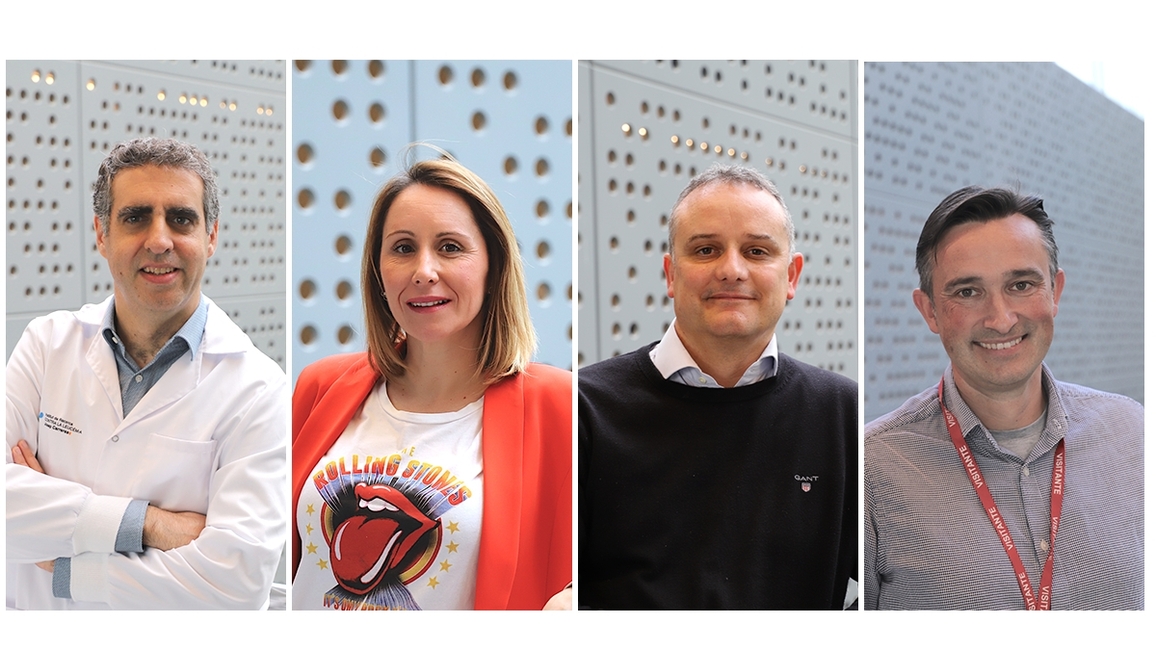The four new "Knowledge Generation Projects" begin at the Josep Carreras Institute: get to know them!
The four new projects granted to groups from the Josep Carreras Leukaemia Research Institute have just started within the framework of the National Program for the Promotion of Scientific-Technical Research and its Transfer, within the 2021- 2023 National Plan for Scientific, Technical and Innovation Research. Do you want to know who they are and what are they going to do? Keep reading!

Scientific research is the key to present and future well-being, and for this reason the National Plan for Scientific, Technical and Innovation Research selects every year the best projects from the best research groups from public and private institutions, to provide them with the necessary funding and make sure the projects can be successfully carried out.
Recently, the projects selected in the 2021 call have been made public and, among those that have just started their journey, four corresponding to research groups of the Josep Carreras Institute can be found. The four projects, each from its own perspective, will help us to better understand the mechanisms underlying the development and progression of different types of hematological cancer. Let us tell you about their basics in the following lines:
Epidrugs: drugs against epigenetic alterations
The group of Dr. Manel Esteller, director of the Josep Carreras Leukaemia Research Institute and head of the Cancer Epigenetics group, will seek to improve the action of drugs against epigenetic alterations. Epigenetics is the set of mechanisms that modify the activity of genetic information and is responsible for most of the changes that occur in our cells during their lifetime, such as becoming cancerous.
Due to its volatility, it is difficult to know to what extent the epigenetics of different cell types in a tissue or tumor vary. Dr. Esteller's group is going to find out the fine details of these variations by analyzing the tumor cells individually and seeing how the epidrugs affect the whole.
The 3D layout of the genome may be important in some lymphomas
Dr. Biola Javierre leads the 3D Chromatin Organization group and is especially interested in seeing how the way in which DNA is physically located in the nucleus of cells, especially B lymphocytes, can contribute to the development of diffuse large B-cell lymphoma.
In her project, Dr. Javierre will investigate how the 3D organization of the genome in the cell modifies gene activity and whether these effects lead to the appearance of cancer. The results of the project will help develop new therapeutic strategies to avoid it.
Recreate the 3D structure of lymphoma to discover its vulnerabilities
Dr. Gaël Roué, leader of the Lymphoma Translational Research group, will develop a project that, like Dr. Javierre, will try to discover vulnerabilities in diffuse large B-cell lymphoma. And he will also do it through understanding its three-dimensional aspect, but not from the genome, but the entire tumor.
The relationships established by the various cells in a tumor are complex and limit, in many cases, the activity of anticancer drugs upon the tumor. To understand the diffuse large B-cell lymphoma, Dr. Roué's group will recreate miniature versions of a tumor using samples from real patients, to study them in the laboratory and develop new ways to attack them.
Histone MacroH2A, a metabolism sensor?
With its new project, the Chromatin, Metabolism and Cell Fate group led by Dr. Marcus Buschbeck, aims to understand the relationships between the metabolic state of the cell and its genetic activity.
The group has been unraveling the functions of histone MacroH2A for years. This is a poorly-known histone variant capable of binding metabolites present in the cell and, in response, altering access to genes and the cellular programs they trigger. If confirmed, they could establish a new genetic regulation mechanism, a source of currently unknown alterations and, also, of new therapies.
All these projects have just started and very soon we will see their outcomes. At the Josep Carreras Leukaemia Research Institute, we are committed with scientific research being the key to, one day in the not too distant future, make leukemia a 100% curable disease, in all cases. Our researchers work tirelessly to achieve it and we will endure until we cure it.